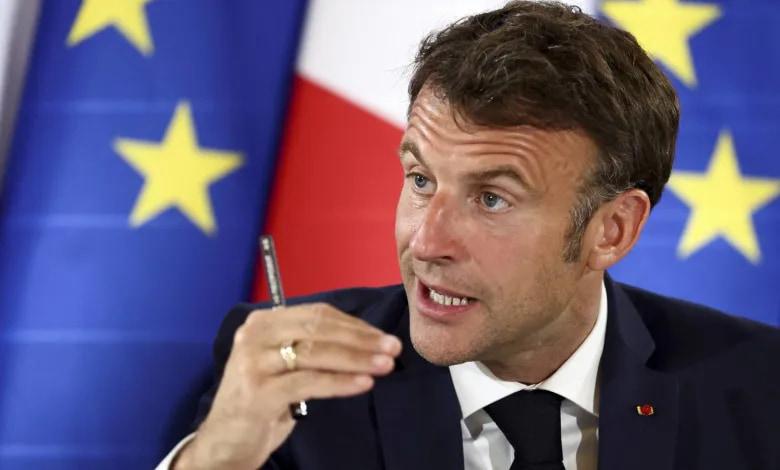
French President Emmanuel Macron expressed his regret that asylum seekers do not always come from countries witnessing wars and conflicts, raising controversy about the extent of his commitment to the right to international protection, which extends under its umbrella to include the vulnerable and persecuted, for various reasons, listed in the Geneva Convention of 1951.
Macron denounced asylum requests, which he described as “economic,” noting that “there is no war in the main countries from which asylum requests come,” during a discussion with students at the University of Lausanne under the title “Let’s Talk About Europe” on the sidelines of a conference held on November 15 and 16 in Switzerland, according to the “InfoMigrants” website.
While answering one of the questions, Macron repeatedly linked the right to political asylum to defenders of freedom of expression, and that those coming from safe countries come to Europe for economic reasons, using their knowledge of the procedures in order to obtain the right to asylum, and that this right has become an “umbrella” for economic immigration. The question was from a university student, who asked him about Europe’s negligence and responsibility towards those coming from countries of conflict, and that Europe is their only chance to survive.
In 2022, Ofpra (the French Office for the Protection of Refugees and Stateless Persons) in France registered just over 130,000 asylum applications. The National Asylum Court received approximately 62,000 files. Last year, more than 56,000 people obtained protection in France. The top countries from which asylum seekers come are Afghanistan, Bangladesh, Turkey and Georgia.
Macron sparked controversy with his answer about the right to international protection, which is given to asylum seekers, even those who are not fleeing armed conflicts, as those in exile who have been granted asylum may have fled their countries as a result of persecution, for specific reasons listed in the Geneva Convention of 1951. These reasons are related to race, religion, or expression of political opinions or belonging to a particular social group.
In addition, another residence permit can also be granted to people fleeing war, called the right of subsidiary protection. This status is “granted to any person who does not meet the conditions for recognition as a refugee.”
It is noteworthy that the French Senate (the upper chamber of Parliament) adopted a tough draft immigration law this month, amid objection from political and human rights groups who considered that passing the law would lead to diminishing the rights of foreigners and increasing the number of deportations.
It is expected that the draft law will be referred to the General Assembly (House of Representatives) to decide on it as of December 11 and to complete the voting process on it.
The text, which was submitted for an official vote on Tuesday, November 13, includes items such as revoking medical aid provided by the state to immigrants, tightening the necessary conditions for “family reunification”, canceling “land rights,” and setting immigration quotas every three years.





